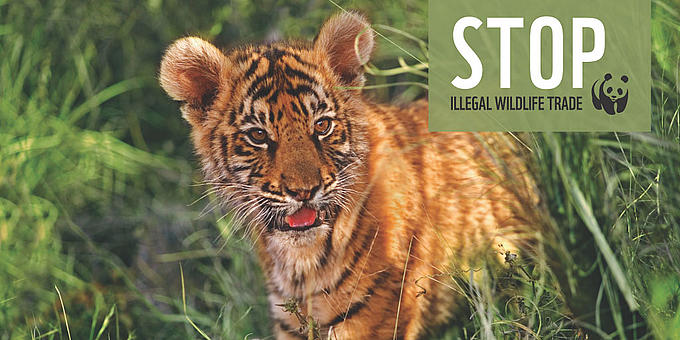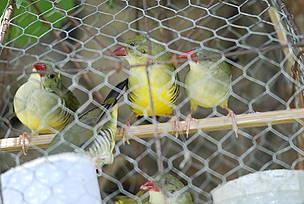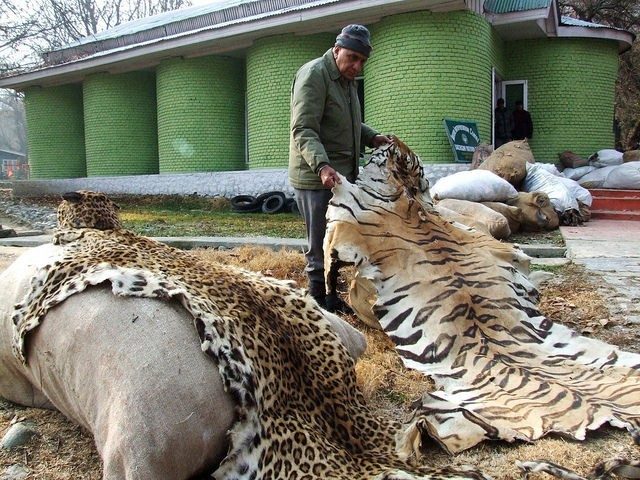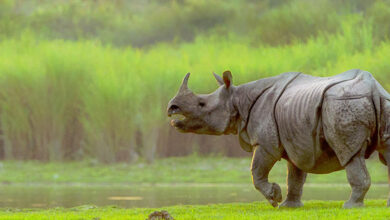
ENGLISH CHANNEL
Illegal Wildlife Trade in India
Wildlife trade refers to the commerce of products that are derived from non-domesticated animals or plants usually extracted from their natural environment or raised under controlled conditions. It can involve the trade of living or dead individuals, tissues such as skins, bones or meat, or other products.
Legal wildlife trade is regulated by the United Nations’ Convention on International Trade in Endangered Species of Wild Fauna and Flora (CITES), which currently has 170 member countries called Parties.

Illegal wildlife trade has emerged as a form of Organized Transnational Crime that has threatened the existence of many wild species across the globe.
In India, it includes diverse products including mongoose hair; snake skins; Rhino horn; Tiger and Leopard claws, bones, skins, whiskers; Elephant tusks; deer antlers; shahtoosh shawl; turtle shells; musk pods; bear bile; medicinal plants; timber and caged birds such as parakeets, mynas, munias etc. A large part of this trade is meant for the international market and has no direct demand in India.
India is supposed to have a strong legal and policy framework to regulate and restrict wildlife trade. Trade in over 1800 species of wild animals, plants and their derivative is prohibited under the Wildlife (Protection) Act, 1972. It is also a part of CITES since 1976.
Despite the framework, in October 2017 a wildlife trafficker with international links who was involved in smuggling the body parts of 125 tigers and 1200 leopards was convicted by a Madhya Pradesh court along with four other traffickers. The punishment is for four years which has not gone down well with activists. It seems disproportionately small for such a heinous crime. (Hindustan Times)
In August, a huge consignment of animal parts was seized from the northeastern state of Assam. The haul included 43 deer heads with antlers, two clouded leopard skins and as many heads, one bear head and skin, 800 grams of bones of different types, one hornbill beak, one wild goat head with antlers, and four otter skins. (The Diplomat)
Such instances make one question the legal framework surrounding wildlife. Experts, however, say that the main reason for the unabated wildlife trafficking across India is its porous international land borders. Native and non-native species are being brought in for illegal trafficking, threatening biodiversity and conservation in the wild.
Recent seizures have highlighted threats even to India’s national animal and bird, the Royal Bengal tiger and the peacock. In 2016, 50 tigers were poached, the highest number in the past decade, spite long-standing conservation efforts being in place.

WWF for Nature launched its flagship Project Tiger in 1973, one of the world’s largest and most important initiatives for the conservation of Royal Bengal tigers. In 1997 a Tiger Conservation Program was added to bolster the protection of tiger activities in India and other Asian countries.
What can be done to stop Illegal Wildlife Trade?
Experts say India’s biggest challenge is the implementation of laws, due to the paucity of staff among monitoring authorities. The lack of political will and governance failures worsen the situation. Disincentives for over-exploitation and illegal trade, such as penalties for legal infringements are also not strong enough.
According to WWF-India, there is an urgent need for knowledge and action to bring the legal wildlife trade within sustainable levels and stop all illegal trade, which has threatened and even pushed many species towards extinction.

It is the realization that wildlife is as important as human life to maintain the ecological balance is needed.
राज्यों से जुड़ी हर खबर और देश-दुनिया की ताजा खबरें पढ़ने के लिए नार्थ इंडिया स्टेट्समैन से जुड़े। साथ ही लेटेस्ट हिन्दी खबर से जुड़ी जानकारी के लिये हमारा ऐप को डाउनलोड करें।





